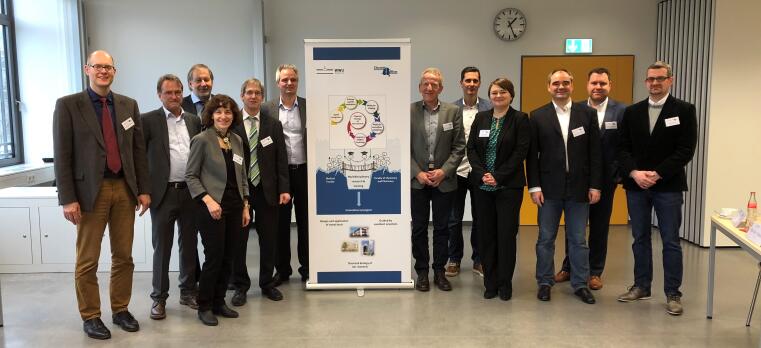
The Research Training Group „Chemical Biology of Ion Channels (Chembion)“ is devoted to small molecules as tools to study ligand recognition, to unravel the molecular and cellular channel (patho)physiology, and to investigate the roles of ion channels in tissue, organ, and body functions. The expertise in design, synthesis, and manipulation of small molecules will be combined with the expertise in cellular and integrative (patho)physiology of ion channels. For this purpose, six groups each from both the Natural Sciences and the Medical Faculty and one group from the interfaculty center EIMI with complementary expertise will collaborate.
Within the interdisciplinary research program of Chembion, we will structurally analyze and deorphanize ligand binding sites, develop novel subtype-selective ligands, and image the localization and density of ion channels. The (dys)function of ion channels will be investigated on the molecular and cellular level, from single cells to integrative systems. Our vision is to solve physiological questions in the field of ion channels with innovative chemical methods, to bring together the molecular world of chemistry/pharmacy with the activity-centered world of medicine and to develop the internationalization of our doctoral students. The aim of the RTG is to provide young scientists with a well-structured 3-years cutting-edge PhD training program in and beyond the given research areas (see Figure 1). The doctoral students will be enabled to gain new insights into ion channel function. The research-oriented qualification programme will provide comprehensive training on all aspects of ion channel function, covering the entire scope from small molecule design to integrative ion channel (patho)physiology.
A hallmark of the RTG Chembion is that molecular aspects of the interaction of drugs and tool compounds with channels are combined with the (patho)physiological aspects of ion channel modulation. For this purpose, the doctoral students are supervised by two mentors, one from the Medical and one from the Natural Sciences Faculty. This concept allows a direct scientific exchange between both fields. Thereby, the usually rather independent research fields fuse and allow pharmacists and chemists to observe drug actions in living specimens and understand experimental needs, while biologists and medical scientists acquire the knowledge about chemical concepts of targeting ion channels.
We are offering a competitive, interdisciplinary environment with a track record of intense mutual collaboration. In addition to the individual training-through-research our program includes further elements such as a 6 months internship abroad, retreats, lab rotation and symposia.


